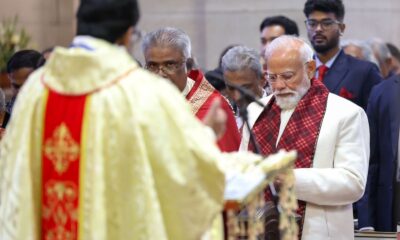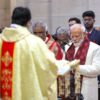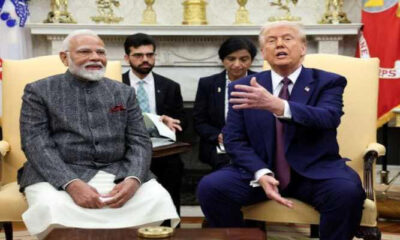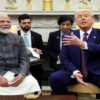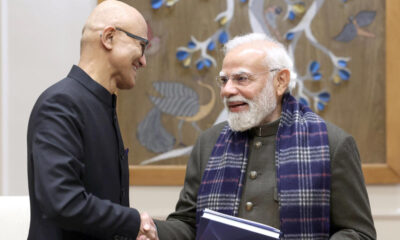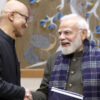Muslims Descendants of Lord Ram, Ram and Krishna Could Be Prophets: BJP’s Jamal Siddiqui Sparks Debate
In a bold and controversial statement, Jamal Siddiqui, National President of the BJP’s Minority Morcha, claimed that Sanatan Dharma predates Islam and that all Muslims are descendants of Lord Ram. His remarks, made in an interview with India Today, drew strong theological and cultural connections between Hinduism and Islam, stirring both interest and debate.
“Sanatan Dharma came much before Islam. It is the foundation of our civilisation,” Siddiqui said, underscoring the ancient roots of Indian culture. He argued that Hindu deities like Lord Ram and Lord Krishna could be seen as prophets within Islamic tradition. “Muslims who do not believe in Ram and Krishna cannot be called Muslims,” he added, making a striking claim that challenges conventional religious boundaries.
Siddiqui’s argument stems from Islamic theology, where it is believed that Allah sent numerous prophets to guide humanity. “The Quran mentions 25 prophets by name, but according to Hadith, there were 1,24,000 prophets sent across the world,” he said. “How can we say Lord Ram and Lord Krishna were not among them?”
By proposing that Ram and Krishna might be messengers of God, Siddiqui attempted to build a spiritual bridge between two of India’s largest religious communities. His statements, however, are likely to invite both criticism and support from different quarters for reinterpreting religious doctrines.
He further stressed that India’s cultural identity has remained largely consistent over millennia, despite differences in worship and religious practice. “Our identity is still Sanatani,” Siddiqui claimed, suggesting that all communities in India—regardless of faith—share a common civilisational heritage rooted in Sanatan Dharma.
Perhaps most provocatively, Siddiqui said, “All Muslims are descendants of Lord Ram,” implying a shared ancestry that challenges the frequently polarised discourse on religion and identity in the country. He did not provide genealogical or historical evidence but appeared to make a cultural and symbolic point about unity and shared heritage.
Siddiqui’s comments come at a time when religious identities remain politically charged, and his attempt to connect Islamic faith with Hindu tradition is bound to be viewed through both theological and political lenses. While some may see his remarks as an effort to foster unity, others may interpret them as controversial redefinitions of religious identity.
Whether received as a call for interfaith harmony or as a provocative theological assertion, Jamal Siddiqui’s statement has certainly added a new dimension to the ongoing conversation on religion, culture, and identity in India.
IT.













